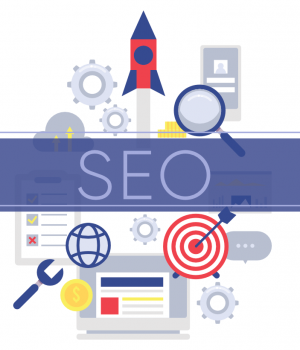E-A-T (Expertise, Authoritativeness, and Trustworthiness) is a term coined by Google to describe the criteria that search engine evaluators use to determine the quality of web pages. It also factors into how highly sites rank in organic search results. The more E-A-T you have, the higher your site will rank within search engine result pages (SERPs). According to Google’s Quality Rater Guidelines, page content should be “authoritative” for its topic. As a leading SEO Company in India, we are here to make you understand what makes up E-A-T:
Expertise: an author’s depth of knowledge about their subject matter published on a website or a webpage.
Authoritativeness: the extent to which a website or webpage is an authoritative source of information on its topic, so it can represent the trustworthy intent of the page content.
Trustworthiness: determines whether you can trust the site for its intended purpose and also how much you can rely on the information presented in order to continue using that site’s search features after finding what you’re looking for.
Let’s Understand Each Of Them In Detail:
Expertise
An author’s depth of knowledge about their subject matter is published on a website or web page. According to Google, “Content that provides thorough, accurate information will be deemed satisfying this objective.” In other words, if your company blog posts are filled with inaccurate facts and poor research, your audience will lose trust in your brand and not visit your site again.
Authoritativeness
The extent to which a website or web page is an authoritative source of information on its topic, so it can represent the trustworthy intent of the page content. According to Google, “Content that covers topics relevant to users’ interests will be deemed satisfying this objective.” In other words, if you write fluff articles with unhelpful information or advertisements disguised as blog posts (like “Top 10 Ways To Lose Weight!”) readers won’t consider you an authority in your industry and they’ll leave your site immediately. They may even report your site for spam!
Trustworthiness
Determines whether you can trust the site for its intended purpose and also how much you can rely on the information presented in order to continue using that site’s search features after finding what you’re looking for. If your content is spammy, you’ll lose trust among your audience and they may report your site as “untrustworthy” or even block it from their own personal results when they use Google Search.
How Does Google Determine E-A-T?
In order to understand how Google determines E-A-T, it’s important to know a little bit about the Quality Rater Guidelines. This document is a handbook given to search engine evaluators (people paid by Google who rate webpages for search) so they can determine the quality of web pages and use this information in their algorithms.
According to Google, “There will be considerable variation among raters’ judgments, so training Raters is critical.” Since there are many variables that go into determining an individual’s or company’s E-A-T on the internet, what you write is very subjective. But there are rules and guidelines that Google has set up with general consensus among SEO experts that can help your content shine.
Expertise is a subjective quality that’s judged on a case-by-case basis. In the Quality Rater Guidelines, Google says, “Some types of expertise are more credible than others.”
Authoritativeness has to do with how trustworthy a site may appear to be among people looking for information on a given topic. According to Google, if your website describes its purpose as providing information on a topic, it should cover that topic “to a depth that is appropriate to its purpose and the information available.”
Trustworthiness has to do with how trustworthy a site is among search users looking for information about its products and services online. According to Google, if your website provides helpful content around specific topics like “solutions” and “services,” it should contain details like an about page to describe its business, who you are as a person or company, and social profiles where customers can learn more about your brand.
Why is E-A-T Important?
As far as Google is concerned, the more E-A-T a page has, the better it will perform in search results. In short, if your website content is high quality and beneficial to users, you’ll rank higher which increases visibility for your brand.
The more visible you are across different types of search results, the more likely you’ll get new visitors from organic traffic. As a result, SEO teams keep their eyes on E-A-T when they want to improve the online presence of a company or a business.
However, getting a high ranking in SERPs doesn’t necessarily mean that people will read what’s on your web pages! Once people find out about how great a site is by reading reviews online or through word of mouth, they might visit your site and find that the content is either low quality or irrelevant to what they’re looking for.
Final Words
If you’re already ranking higher than other brands online but people aren’t clicking on your site because it doesn’t meet their expectations, does page rank really matter anymore? It may be time to reevaluate how valuable E-A-T can be as a reliable SEO strategy.
Follow Techiemag for more informative articles.
Table of Contents





![[Jan 2024] EZTV Proxy | Unblock EZTV | EZTV Alternatives eztv](https://www.techiemag.net/wp-content/uploads/2020/05/eztv-300x194.png)


